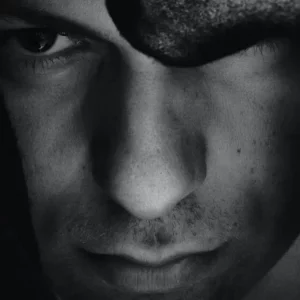Thinking About a Nose Job in Dubai?
Here is Everything You Need to Know
If you're considering a nose job in Dubai, it's important to make an informed decision. This article provides a comprehensive guide to everything you need to know before undergoing the procedure, detailing the different types of nose jobs and the reasons, risks and benefits.
What Is a Nose Job?
Known as rhinoplasty, is a surgical procedure that involves reshaping and restructuring the nose to improve its appearance or function. It is one of the most commonly performed cosmetic procedures in the world and rhinoplasty in Dubai is extremely common. Nose surgeries as a procedure have been around for centuries.
The earliest known record of nose surgeries date back to ancient India, where the procedure was performed to reconstruct noses that had been cut off as a form of punishment.

The ancient Greeks also practiced nasal reconstruction, and the Roman physician Aulus Cornelius Celsus described the technique of using skin grafts to repair nasal defects.
However, modern rhinoplasty as we know it today did not emerge until the early 20th century.
In 1923, Jacques Joseph, a German surgeon, published a book titled "Nasenplastik und Sonstige Gesichtsplastik" (Nose and Other Facial Plastic Surgery), which detailed his technique for performing rhinoplasty. Joseph is often referred to as the father of modern rhinoplasty, as his method of using an internal incision to access the nasal structures is still used today.
Since then, rhinoplasty has undergone numerous advancements and refinements. Today, there are two main types of nose jobs: closed rhinoplasty and open rhinoplasty.
Closed rhinoplasty involves making incisions inside the nostrils, whereas open rhinoplasty involves making a small incision on the columella (the strip of tissue between the nostrils) to lift the skin and expose the nasal structures.
Types of Rhinoplasty Surgery
In Dubai rhinoplasty can be pursued as either a cosmetic procedure or a treatment for medical issues. The medical issues that can be resolved by a rhinoplasty surgeon include correcting nasal deformities.
Nose reshaping surgery is often used to treat nasal deformities, either present at birth or are acquired through life, which cause breathing problems and the functionality inside the nose. These can include the correction of deviated septum, treatment of nasal valve collapse or nasal trauma.

Medical reasons for a rhinoplasty procedure includes the resolution of chronic nasal congestion where it is determined by an ENT expert, such as those you would find at our ENT clinic in Dubai, that it is required to help improve airflow to alleviate breathing issues.
Another reason for rhinoplasty surgery is to help treat nasal injuries. It is often surprising to note the number of patients who present with nasal injuries and nasal trauma that is the result of accidents, sports injuries or other incidents. In these cases the rhinoplasty surgery is aiming to repair the function and appearance of the nose.
Reconstructive rhinoplasty, which is also known as revision rhinoplasty, is a treatment option in cases where the patient has undergone a previous nasal surgery or procedure. Revision rhinoplasty surgery is aiming to also restore the shape of the nose and the function of the nose to improve the overall facial symmetry and also improve nasal breathing.
Who is a Good Candidate for a Rhinoplasty in Dubai?
The answer to this question depends on multiple factors which are not all listed here, however some of the most important factors governing the eligibility for nose jobs include:
Physical Health of the Patient is Important
Good physical health is a prerequisite for any surgery, including a nose job. A patient should be in good health and free of any underlying medical conditions that could affect their ability to undergo surgery or recover from it. Any condition that affects the immune system or increases the risk of infection could be a significant concern.
Age of the Patient is Always a Factor
Age is another crucial factor that affects whether a patient is a good candidate for a nose job. Most plastic surgeons recommend that patients be at least 18 years old before considering a nose job. This age requirement ensures that the patient's nasal structures are fully developed, and the surgery is more effective in achieving the desired results.
Expectations & Expectation Management is Critical
It's important to have realistic expectations about the results of a nose job. Patients who have a clear understanding of what is possible with the procedure and have realistic expectations are typically more satisfied with the results. Patients who have unrealistic expectations about the results of a nose job may not be good candidates for the procedure. A nose job can improve the appearance of the nose, but it cannot completely change a patient's appearance or transform their life.
Medical History Of the Patient In General
Patients with underlying medical conditions that affect their immune system or increase their risk of infection are not good candidates for nose surgery. Medical conditions such as bleeding disorders, uncontrolled high blood pressure, or severe allergies can all complicate the surgery and recovery process.
Mental Health of the Patient & Emotional Stability
Patients with mental health concerns such as anxiety, depression, or body dysmorphic disorder may not be good candidates for nose surgery. These conditions can affect a patient's ability to make informed decisions and may lead to unrealistic expectations.
Sinus Problems Like a History of Sinusitis
Patients who have sinus problems or a history of sinus infections may not be good candidates for a nose job. The surgery can aggravate existing sinus issues and may lead to complications.
Smoking Will Impair Recovery
Smoking can have a significant impact on a patient's ability to undergo surgery and recover from it. Patients who smoke are at higher risk for complications such as infection, poor healing, and scarring.
Nasal Structure & Rhinoplasty Procedure History
It is important to share with your rhinoplasty surgeon information about any previous rhinoplasty procedure in the past. The best rhinoplasty surgeon will always look to understand the history of each and every patient, whether being treated for cosmetic reasons like correcting a crooked nose or symmetry of facial features or for revision rhinoplasty to correct a previous procedure.
MEET OUR ENT & PLASTIC SURGERY TEAM
- All
- ENT
- Plastic Surgery

Risks to Consider
Like any surgical procedure, a nose job carries a number of potential risks and side effects that patients should be aware of before deciding to undergo the procedure. The risks and side effects of a nose job can include:
Infection
While rare, there is a risk of infection after a nose job. The likelihood of infection can be minimized by following proper post-operative care instructions and taking prescribed antibiotics.
Scarring
Some scarring is normal after a nose job, but excessive scarring can occur in some cases. The likelihood of excessive scarring can be minimized by choosing an experienced and skilled surgeon who uses advanced surgical techniques.
Breathing difficulties
Nose jobs can sometimes result in breathing difficulties, especially if the nasal passages are narrowed during the procedure. This risk can be minimized by choosing a surgeon who has experience in performing functional rhinoplasty.
Changes in sense of smell
Some patients may experience a temporary or permanent loss of smell after a nose job. This risk is generally low and can be minimized by choosing an experienced surgeon who takes care to avoid damaging the olfactory nerves.
Need for revision surgery
In some cases, patients may require revision surgery if they are not satisfied with the results of their initial nose job. The likelihood of needing revision surgery can be minimized by choosing an experienced and skilled surgeon who takes the time to fully understand the patient's goals and expectations.
After the Operation
After a nose job, proper aftercare is essential for ensuring a positive outcome and minimizing the risk of complications. Patients should follow all post-operative instructions provided by their surgeon, which may include:
Keeping the head elevated
Patients should keep their head elevated as much as possible for the first few days after surgery. This can help to reduce swelling and bruising.
Avoiding strenuous activity
Patients should avoid any strenuous physical activity for several weeks after surgery. This can help to prevent bleeding and other complications.
Taking prescribed medication
Patients may be prescribed pain medication and/or antibiotics to help manage pain and prevent infection. It is important to take these medications exactly as prescribed.
Keeping the nose clean
Patients should gently clean their nose with saline solution to help reduce the risk of infection and promote healing.
Attending follow-up appointments
Patients should attend all follow-up appointments with their surgeon to ensure proper healing and address any concerns or complications.
Recovery from a nose job can take several weeks, and patients should be prepared to take time off from work and other activities to allow for proper healing.
While swelling and bruising may be noticeable for several days or even weeks after surgery, most patients are able to return to normal activities within a few weeks.
It can take several months for the final results of the surgery to become fully apparent.
